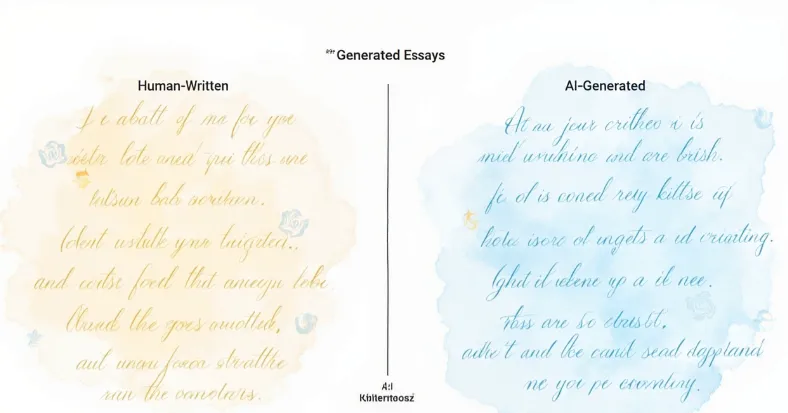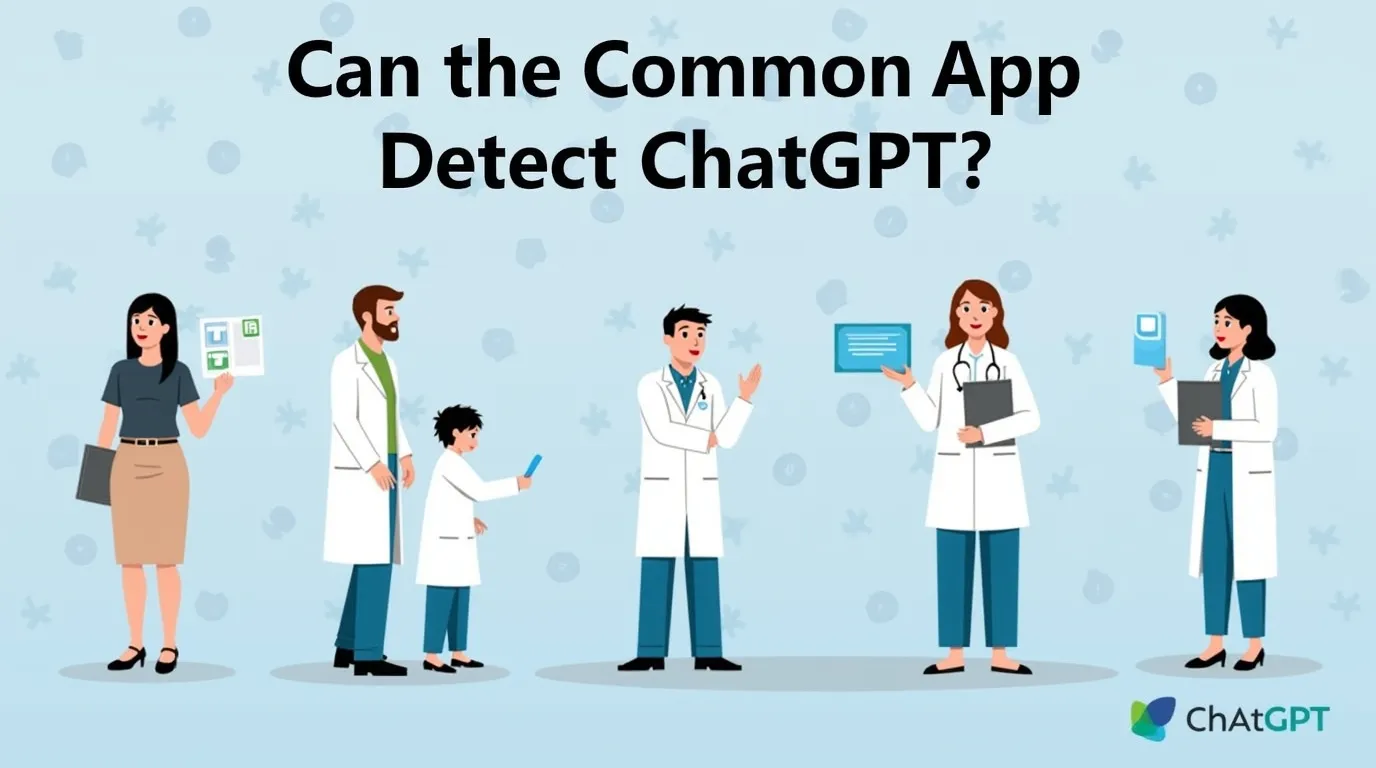The Common Application, widely known as the Common App, is a platform used by millions of students to apply to colleges across the United States. With the rise of artificial intelligence (AI) tools like ChatGPT, developed by OpenAI, many students wonder if they can use these tools to write their college essays. More importantly, they want to know: Can the Common App detect ChatGPT?

Can Colleges Detect AI-Generated Essays?
Colleges and admissions officers use multiple methods to identify essays written by AI tools like ChatGPT. While detection isn’t always guaranteed, the tools and expertise available make it increasingly likely. Here’s how they do it:
- AI Detection Software: Tools like GPTZero, Originality AI, and Turnitin’s AI detector analyze text for patterns typical of AI-generated content, such as repetitive phrasing or unnatural sentence structures. For example, Turnitin claims its AI detector has 98% accuracy . However, these tools can produce false positives, mistakenly flagging human-written essays, or false negatives, missing AI-generated ones.
- Human Expertise: Admissions officers are skilled at spotting differences between human and AI writing. They look for:
- Inconsistent Writing Style: AI may shift tones or use vocabulary inconsistently, which stands out to trained readers.
- Lack of Emotional Depth: AI struggles to convey genuine emotions or personal anecdotes, making essays feel flat or generic.
- Overused Phrases: AI often relies on common expressions or clichés, lacking the unique voice of a human writer.
- Contextual Analysis: Officers compare essays to other application materials, like supplemental essays or recommendation letters, to check for consistency in voice and style. AI-generated essays often lack the personal context that ties an application together.
Despite these methods, detection isn’t foolproof. Some AI-generated essays, especially if heavily edited, may slip through. However, the risk of detection remains significant, especially as detection technology improves.
Common App’s Stance on AI Use
The Common App has taken a firm stance against AI use in college applications. In August 2023, it updated its fraud policy to prohibit “substantive” AI use, as outlined in the Common App Fraud Policy. The term “substantive” is not clearly defined, creating some ambiguity. The Common App evaluates cases based on the “totality of circumstances” to determine if an applicant misrepresented AI-generated content as their own.
If AI use is detected and deemed substantive, the consequences can be severe:
- The student’s Common App account may be terminated.
- Colleges applied to will be notified of the violation.
- Individual colleges decide further actions, which may include rejecting the application or imposing other penalties.
The Common App itself does not use AI-detection software, but many member colleges do, and they rely on their own processes to assess honesty. This means the risk of detection extends beyond the Common App to the colleges themselves.
Risks and Ethical Considerations of Using AI in College Essays
Using AI tools like ChatGPT to write college essays carries significant risks and ethical concerns. Here’s why you should think twice:
- Mediocre Content: AI-generated essays are often described as “mediocre” or “middle school level” by admissions officers . They lack the depth, creativity, and personal insight that make an essay memorable, which can weaken your application, especially at selective schools.
- Authenticity Concerns: College essays are meant to showcase your unique voice, experiences, and perspectives. Using AI undermines this purpose and can be seen as dishonest, as it misrepresents your abilities .
- Detection Risks: Even if AI use isn’t caught immediately, there’s a chance it could be flagged later, leading to consequences like application rejection or account termination.
- Unfair Advantage: Not all students have access to advanced AI tools, which can create inequities in the admissions process. Relying on AI could give some applicants an unfair edge, further disadvantaging others.
- Skill Development: Writing your own essay helps you develop critical thinking, research, and writing skills, which are essential for college success. Using AI bypasses this growth opportunity.
Ethically, submitting an AI-written essay is considered academic dishonesty. It goes against the principles of fairness and integrity that colleges value in their applicants.
Table: Risks of Using AI in College Essays
| Risk | Description | Impact |
|---|---|---|
| Mediocre Content | AI essays lack depth and personal touch | Lower chances of admission, especially at competitive schools |
| Authenticity Issues | Misrepresents your abilities | Seen as dishonest, risking rejection |
| Detection Risks | AI use may be flagged by software or human readers | Account termination, college notification |
| Unfair Advantage | Unequal access to AI tools creates inequities | Undermines fairness in admissions |
| Skill Development | Bypasses learning critical skills | Hinders preparation for college |

Best Practices for Using AI in College Applications
While using AI to write essays is discouraged, you can use it responsibly as a tool to support your writing process. Here are some guidelines:
- Brainstorming: Use AI to generate ideas or create outlines for your essay. For example, ask ChatGPT to suggest topics based on your interests or experiences.
- Grammar and Style Checking: AI can help polish your writing by identifying grammar errors or suggesting clearer phrasing. Tools like Grammarly are also useful for this.
- Feedback: Use AI to get suggestions on improving your essay’s structure or clarity, but always review and adapt these suggestions yourself.
The key is to ensure the final essay is your own work, reflecting your personal experiences and voice. Admissions officers can often tell when an essay has been heavily influenced by AI, even if it’s been edited, so keep AI use minimal and transparent.
How to Write an Original College Essay
To create an authentic essay that stands out and avoids detection issues, follow these tips:
- Tell Your Story: Focus on personal experiences, challenges, or achievements that have shaped you. Share specific moments that only you could describe.
- Be Specific: Include unique details, such as a particular memory or lesson learned, that AI cannot replicate.
- Show Your Voice: Write in your natural style, whether it’s conversational, reflective, or humorous. Avoid overly formal or generic language.
- Avoid Clichés: Steer clear of overused phrases or themes that AI might generate, like “overcoming adversity” without specific details.
- Proofread for Consistency: Ensure your essay has a consistent tone and style that matches the rest of your application.
By focusing on authenticity, you can create an essay that resonates with admissions officers and avoids triggering AI detection tools.
Final Thoughts
The Common App and colleges have tools and expertise to detect AI-generated essays, but detection isn’t guaranteed. However, the risks of using AI—mediocre content, ethical concerns, and potential consequences—far outweigh any short-term benefits. Writing an authentic essay that reflects your unique voice and experiences is the best way to stand out in the college admissions process. Use AI sparingly for support, but let your own words tell your story. By doing so, you’ll not only avoid detection risks but also create a more compelling and honest application.
FAQs
Q: Can colleges really tell if my essay was written by ChatGPT?
A: Colleges use AI-detection software and human expertise to identify AI-generated content, but detection isn’t 100% accurate. Still, using AI risks consequences if caught.
Q: Is it ethical to use ChatGPT for my college essay?
A: No, it’s considered unethical because it misrepresents your abilities and undermines the purpose of the essay, which is to showcase your unique voice and experiences.
Q: What happens if I’m caught using AI in my Common App essay?
A: If the Common App finds substantive AI use, your account may be terminated, and colleges you applied to will be notified, potentially leading to rejection.
Q: Can I use AI for anything in my college application?
A: You can use AI for brainstorming, grammar checking, or feedback, but the final essay must be your own work, reflecting your personal voice.
Q: How can I ensure my essay isn’t flagged by AI detectors?
A: Write your essay yourself, focusing on personal stories and specific details. Avoid generic phrases and ensure consistency with other application materials.
